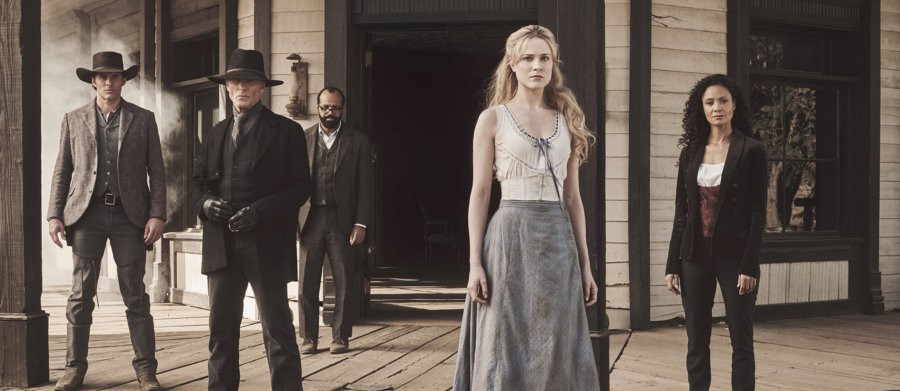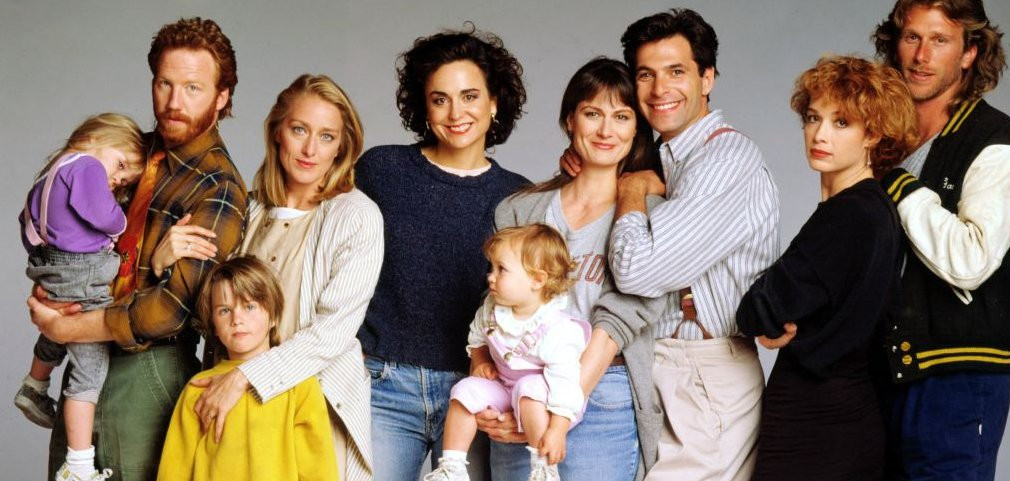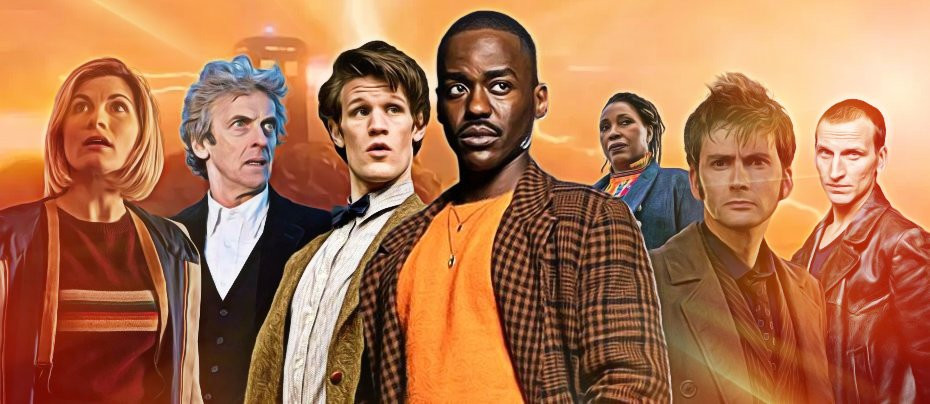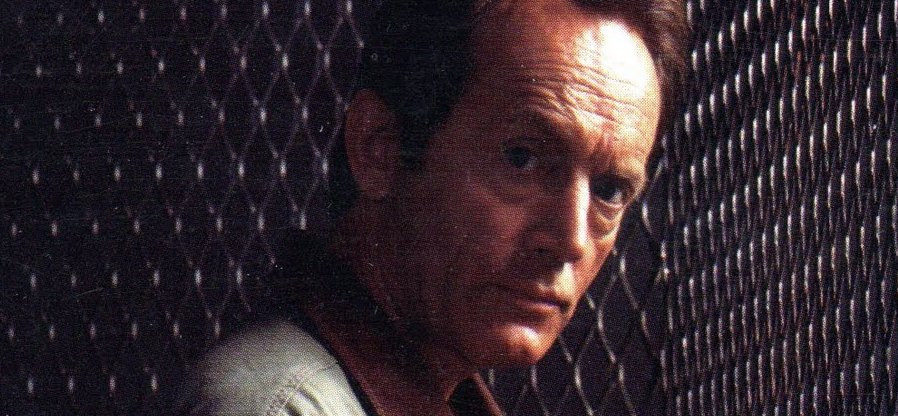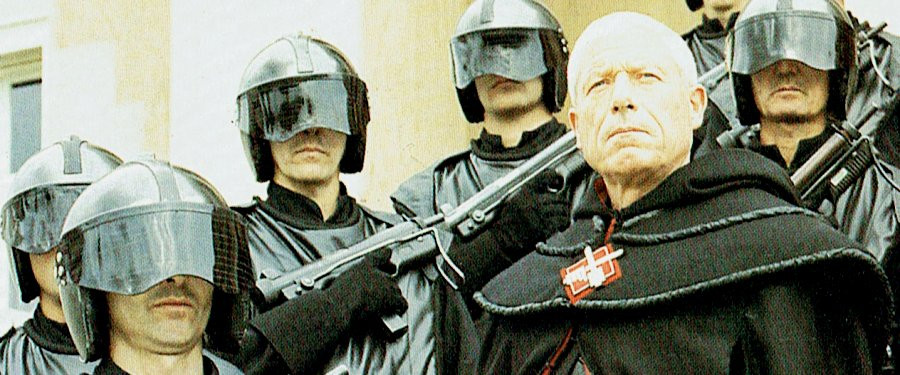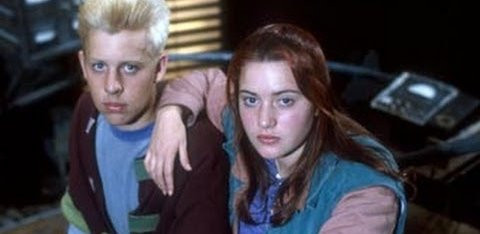
The Storyteller
1987 - Uk UsaFrom its earliest days, stories were at the heart of television, whether viewers sat down to watch drama, documentaries, sitcoms or cartoons. Storytelling is one of the defining characteristics of humanity. We've been telling each other tall tales for thousands of years. In the ancient days before even civilisation, the only way to relate these stories was by word of mouth, sitting down and telling them to each other. Each time, of course, the stories would change a little in the telling, due to forgetfulness, embellishment or dramatic licence. It's no different today, with time-worn favourites being retold again and again by creators for different audiences, with new updates and stylistic changes.
The Storyteller took this approach back to its very core, using television to retell some of the oldest stories known. The series was created by Jim Henson, most famous, of course, for his creations the Muppets. Henson was inspired by his daughter Lisa's university studies in mythology and folklore, and set out to retell such tales using his unique brand of puppetry-meets-live action. Jim Henson's Creature Shop, the special effects company he founded in 1979 with Brian Froud, had previously been the engine behind such legendary fantasy productions as The Dark Crystal and Labyrinth. Now it was to be the birthplace of monsters and mythical beings in all shapes and sizes, brought to life using a combination of puppetry, make-up and costumery.
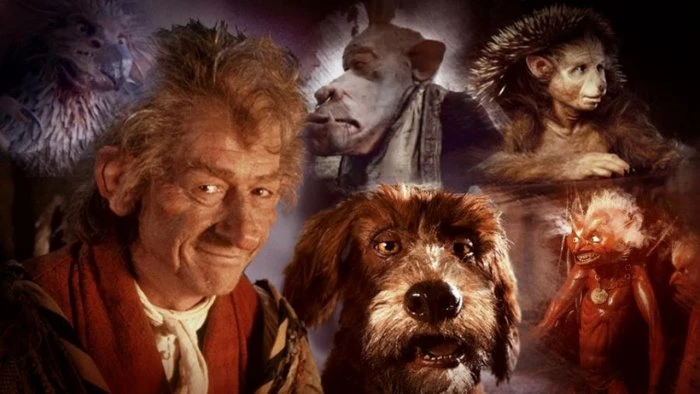
The original run of The Storyteller starred the late, great John Hurt, already famous for stand-out performances in Alien, The Naked Civil Servant, The Elephant Man and 1984. Hurt's distinctive hoarse and characterful voice made him the perfect choice to narrate strange and mysterious tales. Each episode, he would sit by the fire and relate an old tale to the audience, and to his sardonic dog – a puppet voiced and operated by Brian Henson, Jim's son. Brian's voice would have been immediately recognisable to anyone who had seen the film Labyrinth the year before; as well as working many puppets in his father's productions, he had also voiced the goblin Hoggle. The Storyteller himself was a peculiar character shrouded in mystery. With something of a goblin-like appearance himself, due to the false ears and nose, the Storyteller often hinted through his tellings that he had witnessed or even been involved in the stories himself.

The series was an anthology of tall tales, sourced from ancient European folklore, many chosen as they were obscure and little-known in the western culture. Some, though, were recognisable, if only as twisted versions of the stories that the children watching had grown up with. These were stories that had been filtered through other cultures' mores, before they'd been bowdlerised and Disneyfied, and while they never got too nasty or adult, they were frequently disturbing in their style and content. Each was written for the screen by Anthony Minghella, later to win awards for The English Patient and The Talented Mr. Ripley, and largely directed by Henson himself. The style of the narration was deliberately old-fashioned and poetic, with odd turns of phrase that set the stories apart from what children would normally hear on television.
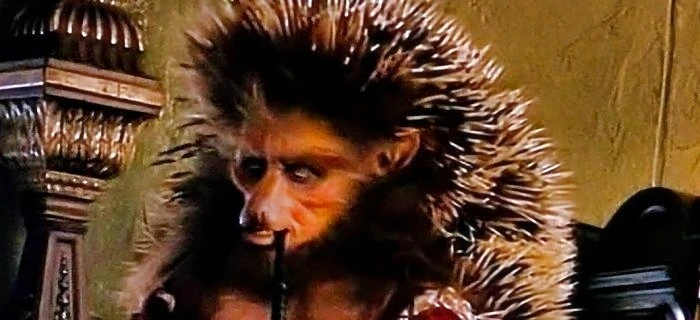
The nine stories ran the gamut of the haunting, the romantic and the nightmarish, and were brought to life by a remarkable range of actors. They can be watched in any order, of course, but the series usually starts with “Hans, My Hedgehog,” an early German fairy-tale that was collected by the Brothers Grimm. A couple desperate for a child are gifted with a boy who is half-hedgehog, who grows up hated for his inhuman appearance – and frankly, the creature is exceptionally unsettling. Jason Carter (Babylon Five, Beverly Hills 90210) portrays Hans in his occasional human form, while Abigail Cruttenden (The Theory of Everything) is his uncertain princess bride. It's ultimately quite a sweet tale, albeit creepy as anything – a perfect example of The Storyteller's style.
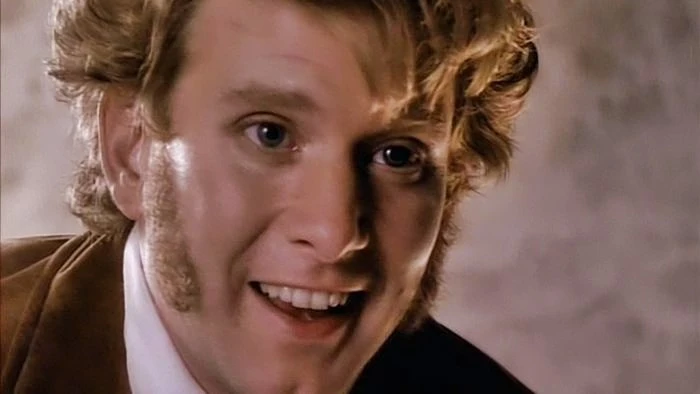
“Sapsorrow” is another German folktale that is clearly an antecedent to Cinderella. A king has three daughters, two of whom are ugly and cruel and the youngest, Sapsorrow, who is beautiful and kind. A ring that belongs to his long-dead queen will grant the throne to any woman whose finger it fits. When Sapsorrow (Alsion Doody – A View to a Kill, Indiana Jones and the Last Crusade) slips on the ring for safe-keeping, she is horrified to discover that it fits perfectly, and by his own law the king must marry his daughter. A lovely subject for a children's tale, yes? Sapsorrow runs away, disguising herself as a monster named Straggletag, who works as a servant for a handsome prince. Falling in love with her when she drops her disguise to go to a ball, he takes her abandoned slipper and tries it on every woman in the kingdom, including, eventually, the monstrous Straggletag. This story boasts some of the best performances in the series, including Geoffrey Bayldon (Catweazle) as the King, James Wilby as the Prince and, brilliantly, French and Saunders as the ugly sisters.
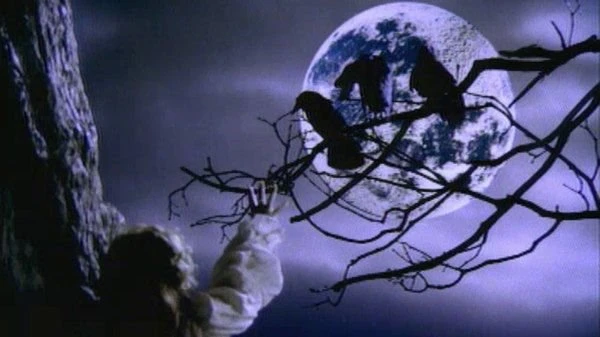
Further stories of Germanic origins include “Fearnot,” the story of a boy (Reece Dinsdale – Emmerdale, Threads) who goes forth into the world to understand what fear is; “The Three Ravens” (based on “The Six Swans”) where an evil witch marries a king and turns his sons into ravens to keep the throne to herself; and “The True Bride,” in which a troll abducts a girl to wait on him when his own daughter leaves. “Fearnot” is one of the weaker episodes of the run, and some of the cast, such as Mark Williams (The Fast Show, Red Dwarf, the Harry Potter series) and Gabrielle Anwar (The Tudors, Once Upon a Time) seem a bit wasted on small roles. However, it features one of the greatest of all the monsters in the series, the Pond Sprite, a fish-like puppet voiced by Michael Cuckson (Joking Apart), along with Frederick Warder (The Living Daylights) as the deeply troubling half-a-man. “The Three Ravens” is excellent, though, with a hiss-worthy performance by Mranda Richardson (Blackadder II, Sleepy Hollow, Good Omens) as the witch and a very young Joely Richardson (Event Horizon, 101 Dalmatians) as the princess who avenges her brothers. The marvellous Jonathan Pryce (Game of Thrones, The Crown, Tomorrow Never Dies and so much more) plays the king. “The True Bride” features a pre-stardom Jane Horrocks (Little Voice, The Witches) as the downtrodden Anja, who is destined to marry none other than Sean flippin' Bean in his pre-Sharpe days (and he doesn't die in this one, either). Frederick Warder appears as well as the wonderfully hideous troll and his daughter, the trollop, while Michael Killgariff (Doctor Who, The Dark Crystal) provides the booming voice of the mysterious Thought Lion.

“The Soldier and Death” has its origins in Russian and German folklore, in which a soldier (Bob Peck – Jurassic Park, Edge of Darkness) who comes into possession of a magic sack, in which he is able to capture not only a gaggle of puppet-y devils but the haunting spectre of Death itself. Cursing himself with immortality, the soldier is left to wander the Earth, and it's hinted that perhaps, just perhaps, he's the Storyteller himself. “The Luck Child” is another one from Germanic folklore, that combines the Grimm fairytales “The Griffin” and “The Devil with Three Golden Hairs,” but all these stories were cross-pollinated over the centuries so there has never been a “right” version. The seventh son of a seventh son grows up to be Lucky (Steven Mackinstosh – Lucky Man, Lost Christmas, Lock, Stock and Two Smoking Barrels), prophesised to become king. The extant king isn't too happy about this and does everything in his power to get rid of Lucky, but he's just too, well, lucky. Featuring a beautiful griffin puppet and Robert Eddison (the Grail Knight from The Last Crusade) as the chilling Ferryman, it also stars Philip Jackson and Pauline Moran as the king and queen – Inspector Japp and Miss Lemon in Agatha Christe's Poirot.
There was one more trip to old Germany for “The Heartless Giant,” a classic fairy-tale in which a young prince (Elliot Spears) foolishly befriends a cruel giant – Warder again, within a fantastic costume under a puppet-head. The prince goes on a quest to find the giant's heart, kept hidden in an egg inside a duck, down a well in a church in the middle of a lake inside a mountain. Although this version is German, the story has variants all over Eurasia, such as the tale of Koschei the Deathless from Russia, and the Serbian story of Bash Tchelik. “A Story Short” is of Celtic origin, but again has variations all over the world. This one sees the Storyteller recount a tale of when he himself tricked a castle cook into believing he could make soup from a stone. None other than the multi-award-winning Brenda Blethyn as the Storyteller's long-lost wife, while John Kavanagh (Braveheart, Alexander), Richard Vernon (The Hitchhiker's Guide to the Galaxy) and Bryan Pringle (Darkness Falls, Brazil) also appear.
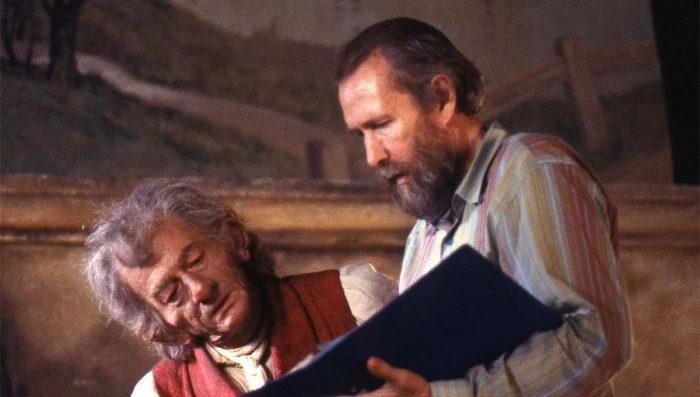
Being mostly Germanic in origin, there's a certain sameness that creeps in across the stories, but they're all creepily, spellbindingly effective. Henson had intended to create a second series which would feature more stories of more varied origin, and Hurt was very enthusiastic. However, Henson died in 1990, which led to a number of his plans being dropped. A number of scripts for these planned stories were later adapted into graphic novels. However, Brian took over the Jim Henson Company on his father's death. Some of the company's greatest productions, such as The Muppet Christmas Carol and Dinosaurs were created under his leadership in the early nineties, but first, he revived The Storyteller for a brief new run.
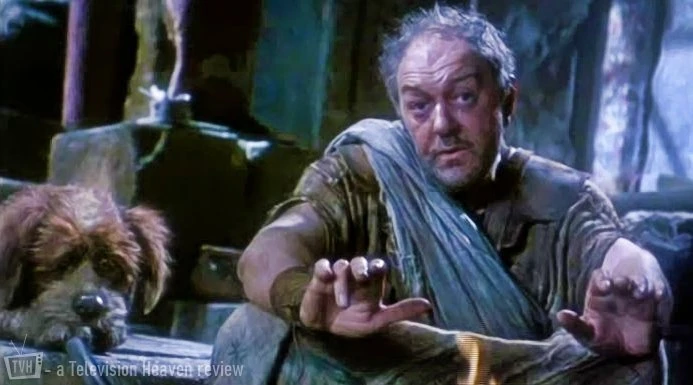
The Storyteller: Greek Myths took the stories back further in time, but were more familiar to most of the audience. Greek myths are taught to children and easily accessible – I was certainly hugely into them as a boy – and the second series is a little less special because of this. Over a mere four episodes, a new Storyteller tells his tales. Played by Michael Gambon (Gosford Park, The King's Speech, Harry Potter again alongside much, much more), the new Storyteller is a more physical, rambunctious character. The dog is back, though – seemingly the very same dog, which is a mystery unto itself. The Storyteller and his dog fall into the underground catacombs of the Labyrinth of Knossos, home of the monstrous Minotaur. While Anthony Minghella was credited as creator of this series, Nigel Williams (Elizabeth I, Skallagrigg) wrote all four episodes.

Beginning, naturally, with “Theseus and the Minotaur”, Greek Myths ups the monster game considerably, even beyond the fantastic creations of the first series. An unsettlingly realistic Minotaur (Steve Varnom) is hunted down by the hero Theseus, played by a young David Morrissey (The Walking Dead, Blackpool, State of Play). Morrissey is excellent as the courageous but selfish Theseus, while Maggie O'Neill (Shameless, Peak Practice) gives a powerful performance as Ariadne, Princess of Crete, the Minotaur's sister. This series is more theatrical in style, particularly this episode, which also features Lindsay Duncan (Sherlock, The Honourable Woman) as the spiteful Medea, Amanda Burton (Brookside, Silent Witness) as Perseus' mother Aithra and veteran actor Robert Flemyng (Funny Face, The Deadly Affair) as Aegeus, King of Crete.
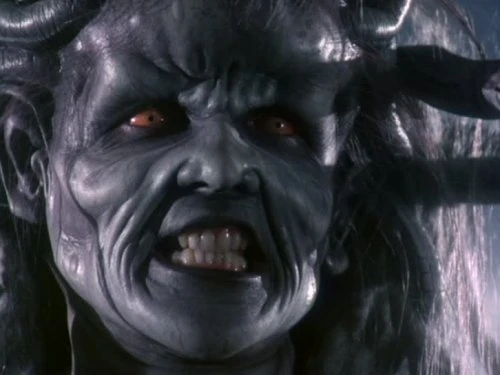
“Perseus and the Gorgon” tells one of the tales of Medusa, the monstrous snake-haired gorgon. Jeremy Gilley (Spatz, The Bill) plays Perseus, raised in darkness, with Kate Buffery (Wish Me Luck, Wing and a Prayer) as his mother Danae. John McEnery (The Broker's Man, The Scarlet Pimpernel) is sneeringly evil as the rapacious King Polydectes, who demands to marry Danae, leading Perseus to track down Medusa and take her head to him as proof of his devotion to his mother. Even better is Frances Barber (Silk, Doctor Who, Psychobitches), who under some nightmarish make-up is a terrifying Medusa. Even nastier are the three Graeae sisters, hideous crones who share one eye between them. It's an excellent version of the myth – petrifying!
“Orpheus and Eurydice” is the story of the great musician Orpheus, played by the already hugely well-known and critically regarded Art Malik (The Jewel in the Crown, The Living Daylights, True Lies). When his love, the nymph Eurydice (Gina Bellman, Coupling) is killed during a tussle with a cocky, wide-boy styled satyr (Jesse Birdsall, Footballer's Wives, Bugs), Orpheus travels to the Underworld to recover her soul. There he faces the ferryman Charon (Trevor Peacock – Neverwhere, The Vicar of Dibley) and the cold-hearted Hades (the great stage actor Robert Stevens). Finally, the truly excellent “Daedalus and Icarus” stars one of our very finest actors, Derek Jacobi (I, Claudius, Cadfael, Vicious). As the tormented Daedalus, he is at his theatrical best. The great inventor, embarrassed by but devoted to his clumsy son Icarus, kills his talented nephew Talos (Ian Hawkes and Alastair White respectively). Fleeing to Crete, Daedalus is commanded to build the Labyrinth by King Minos (John Wood), bookending the series cleverly. However, his dream to fly using artificial wings for him and Icarus ends in tragedy. It's a truly tragic story in the theatrical sense, although there's a touch of humour from a vindictive vulture, played by the great voice artist Peter Hawkins (Doctor Who, SuperTed).
Greek Myths lacks the sheer esoteric strangeness of the original series of The Storyteller, but its short run features some of the most effective adaptations of classical myth ever seen on screen. It's a pity both series were so short-lived; there's so much scope for more ancient stories to be retold. There is, however, work in progress to revive the series, with Neil Gaiman (Neverwhere, MirrorMask) slated to write the stories. As someone who has reworked mythology and folklore to create new stories throughout his career, he seems an ideal choice, and with the advances in technology, the Creature Shop's creations could be even more monstrous and fantastical. The original run of The Storyteller, though, will surely never be matched for its haunting, evocative creations. Deservedly winning three major awards (the 1987 Emmy for Outstanding Children's Programme and the 1989 BAFTAs for Best Children's Programme and Best Costume Design), The Storyteller remains a beloved journey into the fabulous.
Review: Daniel Tessier
Seen this show? How do you rate it?
Seen this show? How do you rate it?
Published on May 20th, 2021. Written by Daniel Tessier for Television Heaven.


